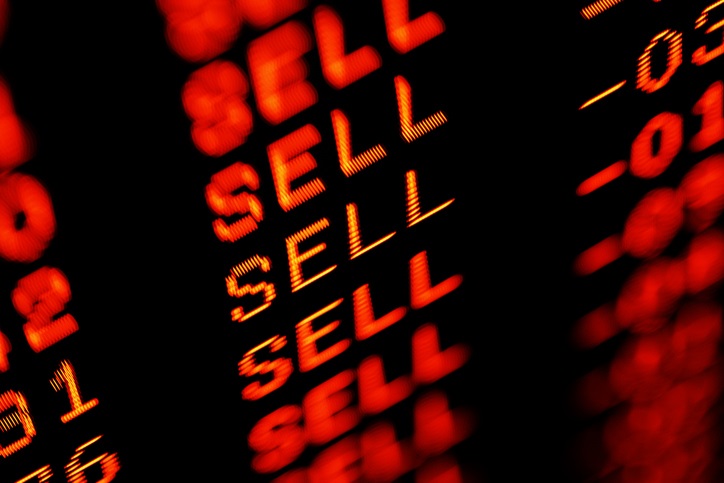Investors sell funds at the fastest rate since the pandemic
8th March 2022 11:45
by Sam Benstead from interactive investor
UK savers pulled nearly £650 million from funds in January as the cost-of-living crunch worsened and US stocks fell.

Volatile stock markets and rising inflation prompted savers to sell funds in January at the fastest rate since the March 2020 pandemic-induced stock market crash.
New data from the Investment Association (IA), a trade body, showed that UK savers pulled £642 million out of retail funds, marking the first month of negative net sales in almost two years. Overall, the retail investor fund pool declined 5% month over month.
The flight to cash was prompted by the continued shift in investors’ preferences from expensive growth shares to cheap value shares.
Rising inflation is forcing central banks to raise interest rates to cool prices, which means investors are more drawn to profits today over profits promised in the future.
This change in market sentiment hit American stocks particularly hard because the index is packed with richly valued technology firms. The S&P 500 fell 6% in January, while the UK market, full of value shares such as those in the mining, oil and banking sector, was flat.
- Make the most of your ISA in 2022: read and watch share tips and ideas from our experts
- Tactics the pros use to combat rising levels of inflation
Despite the relatively strong performance, UK funds were the most-hated sector among investors, with £1.6 billion being withdrawn overall. Around £700 million was taken out of US funds, while global funds gathered nearly £500 million in extra assets.
Money market funds, which are a cash equivalent, were the bestselling asset class in January, with inflows of £820 million, as investors sought to protect their portfolios.
A spike in the cost of living as inflation hit 5.5% in January could have also prompted savers to sell investments to fund essential expenses.
Chris Cummings, chief executive of the IA, said: “Rising inflation and market uncertainty cast a shadow over the start of the year in the fund market, with the first net retail outflows since the first national lockdowns in March 2020.
“Caution saw investors opt for diversified funds to help mitigate risks, and the strong sales to short-term money market funds showed savers are waiting to see how markets will develop.”
- Sea of red across global stock markets as Russia invades Ukraine
- When markets fall heavily, here's what to avoid doing
Russia’s invasion of Ukraine in late February has sent stock markets tumbling, something which is likely to have triggered more selling among UK savers.
Cummings adds: “Events have moved quickly since January, and the Russian invasion of Ukraine has seen a negative reaction from markets. The crisis is deeply tragic for Ukraine’s citizens and investors have acted to show support and swiftly complied with the latest sanctions provisions.”
Despite tough investment conditions, savers continued to add money to responsible investment funds. Net retail inflows hit almost £750 million in January, even as oil and gas stocks performed well and technology stocks, where ethical funds tend to be overweight, fell.
These articles are provided for information purposes only. Occasionally, an opinion about whether to buy or sell a specific investment may be provided by third parties. The content is not intended to be a personal recommendation to buy or sell any financial instrument or product, or to adopt any investment strategy as it is not provided based on an assessment of your investing knowledge and experience, your financial situation or your investment objectives. The value of your investments, and the income derived from them, may go down as well as up. You may not get back all the money that you invest. The investments referred to in this article may not be suitable for all investors, and if in doubt, an investor should seek advice from a qualified investment adviser.
Full performance can be found on the company or index summary page on the interactive investor website. Simply click on the company's or index name highlighted in the article.